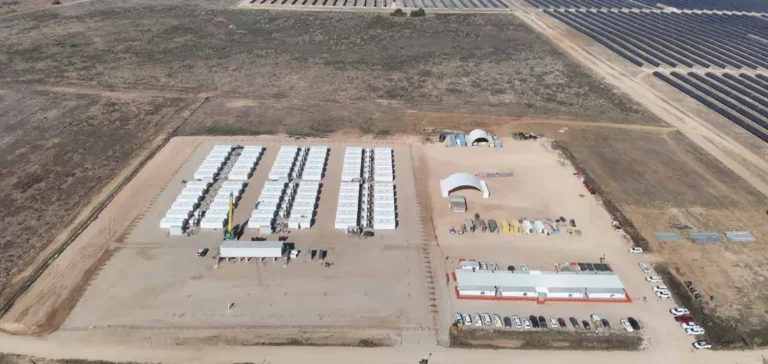RWE Renewables Australia has registered the first eight-hour Battery Energy Storage System (BESS) with the Australian Energy Market Operator (AEMO), marking a critical step forward for long-duration storage on the Australian energy market.
Located near the Limondale Solar Farm in New South Wales, the battery system is built on 144 Tesla Megapacks. It has a capacity of over 50 megawatts (MW) and 400 megawatt-hours (MWh), making it the longest-duration battery currently operating on Australia’s grid.
Testing phase prior to full commissioning
The system now enters the hold point testing phase, a required step before final approval. Full commissioning is scheduled before the end of the year, according to the company’s timeline. The project marks the end of construction and the transition to operational testing, which is mandatory before commercial operation can begin.
Limondale BESS is the first project to receive a Long-Term Energy Service Agreement (LTESA) under New South Wales’ Long Duration Storage tender. The mechanism aims to support renewable energy integration by securing revenue for projects critical to grid stability.
A pilot project with structural ambitions
Once operational, the facility will store excess solar energy produced during the day and discharge it during peak demand periods. This type of infrastructure enables optimised use of variable power sources while relieving pressure on the grid during high-consumption hours.
The eight-hour configuration distinguishes itself from typical Australian battery systems, which are often limited to two or four hours. It sets a precedent for a different investment model focused on meeting the national grid’s increasing flexibility needs.
Technical and industrial collaboration
Project delivery involved several industrial partners, including Tesla for storage equipment, Beon for electrical works, Lumea for grid connection, and TransGrid for transmission infrastructure. RWE Renewables Australia coordinated the overall technical and operational development.





















